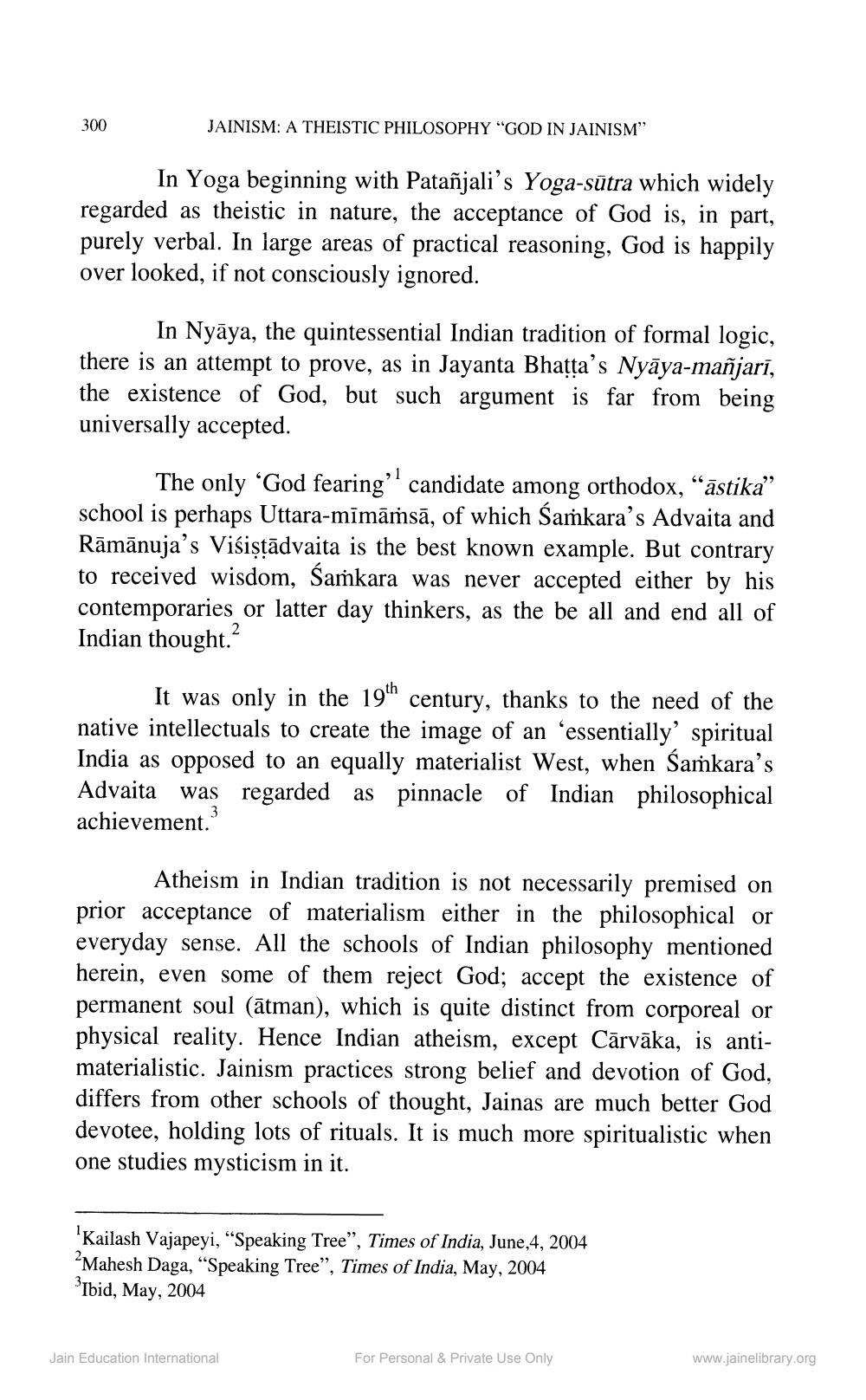________________
300
JAINISM: A THEISTIC PHILOSOPHY "GOD IN JAINISM”
In Yoga beginning with Patañjali's Yoga-sūtra which widely regarded as theistic in nature, the acceptance of God is, in part, purely verbal. In large areas of practical reasoning, God is happily over looked, if not consciously ignored.
In Nyāya, the quintessential Indian tradition of formal logic, there is an attempt to prove, as in Jayanta Bhatta's Nyāya-mañjarī, the existence of God, but such argument is far from being universally accepted.
The only "God fearing candidate among orthodox, “āstika” school is perhaps Uttara-mīmāṁsā, of which Šamkara's Advaita and Rāmānuja's Viśistādvaita is the best known example. But contrary to received wisdom, Saṁkara was never accepted either by his contemporaries or latter day thinkers, as the be all and end all of Indian thought.
It was only in the 19th century, thanks to the need of the native intellectuals to create the image of an 'essentially' spiritual India as opposed to an equally materialist West, when Saṁkara's Advaita was regarded as pinnacle of Indian philosophical achievement."
Atheism in Indian tradition is not necessarily premised on prior acceptance of materialism either in the philosophical or everyday sense. All the schools of Indian philosophy mentioned herein, even some of them reject God; accept the existence of permanent soul (ātman), which is quite distinct from corporeal or physical reality. Hence Indian atheism, except Cārvāka, is antimaterialistic. Jainism practices strong belief and devotion of God, differs from other schools of thought, Jainas are much better God devotee, holding lots of rituals. It is much more spiritualistic when one studies mysticism in it.
Kailash Vajapeyi, “Speaking Tree", Times of India, June,4, 2004 2Mahesh Daga, “Speaking Tree", Times of India, May, 2004 PIbid, May, 2004
Jain Education International
For Personal & Private Use Only
www.jainelibrary.org




